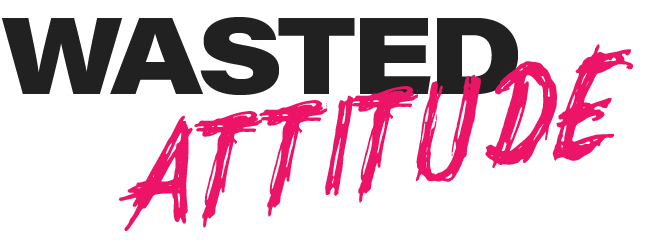Words: Miljan Milekić
The first time I met Boaz Arrow Aquino, was back in 2013, at Pannonian Challenge in Osijek, Croatia. I actually think he slammed in both his runs, but I really liked his style, his flow, his approach to skateboarding, and his taste in music. The very next day, I reached out to him for a mini-interview for the music outlet I wrote for at the time, and we have stayed in touch ever since. So, I may have got to know him as a skateboarder, but in the coming years, I got to know him as a photographer, videographer, and all-around creative mind, who does everything with the same creativity and passion he has on his board. The skateboarding ambassador, who is always there for the young generation, Boaz decided to take a step back from the skate industry, and dive into his other interest. Of course, stepping away from the board was never an option. Right now, he’s spending his days in quarantine in the suburbs of Tel Aviv, so we decided to grab a cup of coffee in a video call, and bring you this interview. Check it out.
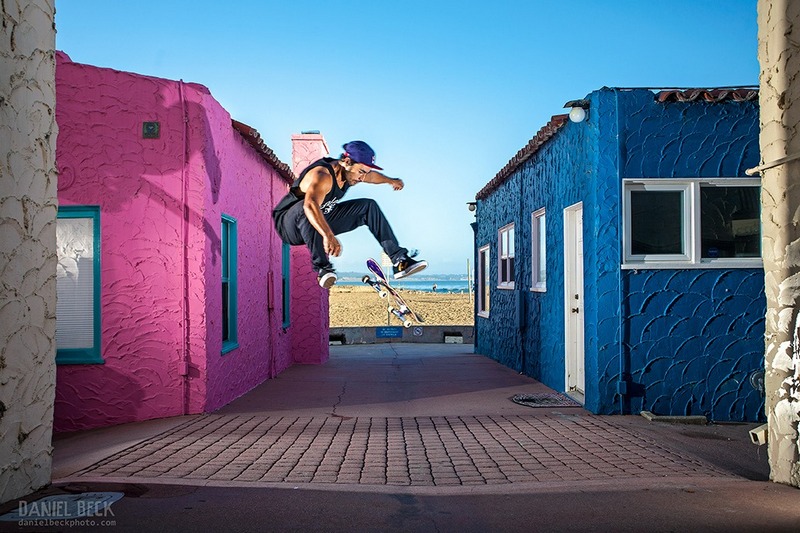
Hey man!
Boaz: Hey! Where’s your mask?! You’re too close to the screen, move away! Two meters! (laughs)
All right! (laughs) So how are you? How are you spending these weird times?
Boaz: Man, these quarantine life… I’m with my girlfriend in my parents’ house, we are hiding here in the suburb, outside of Tel Aviv. It’s a little cabin I lived in after high school. She is a singer-songwriter, her name is Talia Londoner, and she has a band Let’s Mars. So, she has a piano and everything, she’s working on songs, and we’re trying to have our schedule and routines. Without that, we’d go crazy. We have our dog, Frankie, with us, so we take him for walks, I try to skate a little bit. We do yoga in the mornings, my girlfriend also teaches yoga, so she also has that going on on the Zoom. So yeah, what can I tell you? I love the sky, it’s so clean and fresh, you can feel the difference since everything stopped for the last two months, but I’m also a little bit nervous, you know? It’s much bigger than we thought.
OK, I know you probably told this story about a million times so far, but I’ll ask it once again. You have quite an unusual story behind your name.
Boaz: Okay. (laughs) So, it’s Boaz Arrow Aquino. My mother is from Israel, so Boaz is originated from a Bible, it’s the great-grandfather of King David. Also, my father’s name is David. Middle name, Arrow, is a native American name given to me because my father is a half-native American, half-Filipino. So they mixed it together. And also, my Zodiac is Sagittarius, who has a bow and an arrow. So, Boaz Arrow Aquino – bow and arrow. So yeah, a little bit hippie story. (laughs) But I’m happy with it.
So, I know that skateboarding isn’t the number one priority for you right now, but I met you through skateboarding, and I’ll go with a bunch of skateboarding questions first.
Boaz: Sure. Also, I’m not in the industry of skateboarding, I, kind of, took a step back from it, but I’m still skating. I’m still obsessed. (laughs) I still follow the magazines and check the videos on Instagram. I’ve just checked the fucking Thrasher. It’s a mind fuck, you know? I got my passion for it again. I’m stuck in this neighborhood where I grew up, and I’m looking at all these spots I didn’t skate for fifteen-twenty years, and I find myself skating them and getting inspired. It’s bringing me back to childhood. Like, what was the thing I like to do when there was nothing to do? Oh, skate! Let’s go skate! It’s still there – in Hebrew, we call it the virus or the bug. It’s still there. (laughs)
How did you get into skateboarding? I remember once you told me a story about a movie.
Boaz: ‘Back To The Future,’ yeah! When Michael J. Fox is waking up, and he’s late for school. All the kids in the 80s were always late to school, it happened to all of us. (laughs) So, the movie begins with him waking up late, and he’s grabbing his skateboard. And you know, back in the 80s, the wheels were so big, like a cup almost, and so colorful. For me as a kid, it was like a trip. Like, what is this, a toy for grownups? (laughs) So, he runs, grabs the pickup truck from behind, and stands on the skateboard to get to school fast. And I was just in love, from that second I saw it. It was like a computer game, he could do whatever he wants on a skateboard. And I was hooked, I just wanted to know more.
I always loved to watch you skate, as to me, it seems like you’re bringing skateboarding closer to the art form than a sport. How do you see it, and where do you find the inspiration?
Boaz: First, thank you for this question, and thank you for the appreciation of my skating and my flow. I like to call it flow – to stay in the movement and make it look effortless. And also in the momentum. Sometimes people do really impressive, amazing tricks, but they’re going so slow, there’s no momentum. And that’s always important to me. And how do I refer to it – it’s a movement you’re trying to create. If surfers surf the wave, when you’re skating on the street, you create the wave. You create the momentum, the movement. We do go straight, but the straight line is only in your head.
When I started skating in the 80s, we had our skate guru in the skate park. Now he’s a snowboarder. He wasn’t doing any kickflips. I remember that was his weak point, and young kids always laughed at him. He always talked about connecting point A to point B and doing it in an interesting, stylish way. Of course, make it difficult, add tricks in there, but also reach from point A to B. To make a thing out of it, connect the dots. So that’s was interests me. And when I got a little older and started skating streets and spots around the world, I used that to enjoy the places. And I think people noticed it. It’s a really fun way to skate, instead of just making it very technical all the time, or making it very dangerous and dramatic. Dramatic skateboarding was big in the early 2000s. (laughs)
When you ride, you look like you’re trying to embrace everything around you. The spot, city you’re in, sounds around you, music. How much can the location influence your riding?
Boaz: Wow, Interesting question. Deep stuff. (laughs) First of all, you are really in the moment, and you have to embrace everything. Like, if there are cracks on the floor, if there are people running or there’s a bus coming. But also, you got to find your quietness, a quiet place inside all that madness. You know, skateboarding is very good for kids with ADD. When I was a kid and did my homework, I would always have the radio very loud, and at the same time, I would have a basketball or my skateboard under the table, moving it with my legs. But then, when I skate, I don’t need all these distractions. I can create peace out of it. Also, skateboarding is very urban. We need an urban environment. Of course, if there was a ramp in the middle of the woods, it’s a dream, but it’s a very urban thing. We’re sidewalk surfers as they say, but the wheels are very hard, especially on the technical skateboards. If you ride a bicycle, the surface you’re riding on doesn’t really matter. On a skateboard, our eyes are on the floor the whole time, looking for that smooth patch on the road we can skate on. Or if you’re riding on the concrete floor tiles, you’re getting a massage for your knee cap. (laughs)
We are really affected by it, we’re hunters for the little spaces where we can perfect our craft. Like, two days ago, I was in a quarantine session. In a group, everybody said where we meet, and we met in an industrial zone, behind some buildings. It’s all smooth marble, and nobody comes to check on you there. And for us, this is heaven. For everybody else, it’s just the back of the building. They don’t know what’s going on there. And we had a session. You know, everybody kept the distance, only elbow taps, no high-fives. (laughs) But it was exactly what you’re talking about. To be in an open space, experiencing it, and taking everything in. I think skateboarding is the best way to explore a city. Walking can sometimes be too slow, and on a bicycle, or in the car, you’re not really on the floor. Also, you can’t just stop. With a skateboard, you can stop for a second. You don’t have to worry about where to park. It’s like the best exploration tool for urban spaces. So yeah, I think the location affects everything. If there’s enough space, and you get inspired, then amazing things happen.
You’re a huge fan of music and think I’ve never seen you without your headphones. What do you like to listen to while riding?
Boaz: I’m a big fan of the golden years of hip hop, the late nineties. I listen to a lot of reggae and dub music. When I go skate, I usually start with something slow like reggae, then get hyped with hip hop, or sometimes even trap music to get really hyped. (laughs) But I can’t hang with it too long ’cause it’s so repetitive, and a little monotonic. During this quarantine, I discovered this guy, Marc Rebillet, he has a livestream right now as we speak. He makes music live. People give him the topic, and he makes a song on it live. He has a looper, a keyboard, some percussion. It’s amazing. He’s the future of music, man. I recently did this video with my dog, I put his song in the background. And it’s a song that he did before the Coronavirus, and in the song, he’s saying like – “Everybody has to get in the shelter, it’s the end of the world. I’m just gonna chill in my room and get high. The comet can hit us, I don’t care.” He’s pretty amazing. I love music, man. It’s the soundtrack of life. If I wasn’t a skateboarder, I wish I would be a musician, because of the stuff you can do with music. The communication you have with other people.
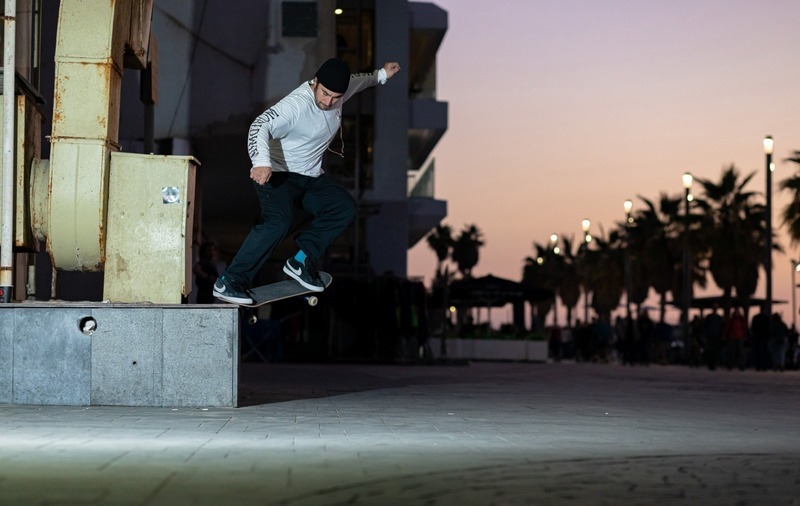
You travel a lot, and you lived in quite a few countries. How did your international background, and living in different places influence you as a person, and your views of the world?
Boaz: Traveling definitely influenced who I am today and my views on things. I think having experiences in places other than where you were brought up, and from the culture and the community gives you different views on things. Maybe you didn’t know how they work, or maybe you had a different thought about them, but then you experience them and get to know their reality and the other side of the coin. And being able to have a common language everywhere I go and make friends really quickly, definitely shaped who I am and how I see things, but also how I accept people and things. ‘Cause, we are all the same in the end.
You took part in quite a few contests over the years; I first met you in Osijek at Pannonian Challenge and then even saw you taking the win at Winner of Belgrade in Serbia. Yet, it always seemed like you were there to have fun, to meet people and the culture, and not necessarily to win. What is more important to you at the contests?
Boaz: It’s funny you say that. (laughs) There’s like this whole story that you’ve just reminded me of. There was this guy, Burn rider, I forgot his name, and he was winning all the contests in the area in those years. He was doing a circuit and hitting every contest. I think at Pannonian, the year before he was under me, and then the year after he won. So I saw how he’s working on his lines, and how he has everything dialed. I used to skate like that, but at that point, I couldn’t do it anymore. I couldn’t do the same run for every contest. And I said – “Fuck it. I have to beat this guy in his own game, ’cause he’s chasing me.” I didn’t even realize he’s chasing me. (laughs)
And then my good friend from Zagreb – Erva G, told me that he’s going to this cool contest in Belgrade and that I should also come. I remember, at Pannonian, I had these new shoes, and I had a terrible run. I think I slammed or something. I was really bad, and I was like – “Fuck it, let’s go to Belgrade and have another match!” So, on one hand, I stepped into this contest from a competitive side, but mainly I just came there to have fun. I was there with Erva, and all the guys who made the contest were amazing. This rollerblading crew and they do breakdance, and all their girlfriends do pole dancing. It was amazing, I couldn’t believe this community and the skate park next to the river. And the skate park was good, it was not too big. It’s smaller than in Osijek. And I wasn’t trying to win the contest as much as I was trying to have more fun than him while skating. (laughs) But actually, I had a lot of confidence, and then it rained in the finals. I was like – “Oh shit, now we have to recycle this feeling and save it for tomorrow.” But it worked out in the end. It was amazing. I’d like to come back. I heard the next year they had like crazy floods, that the skate park got all flooded from the river.
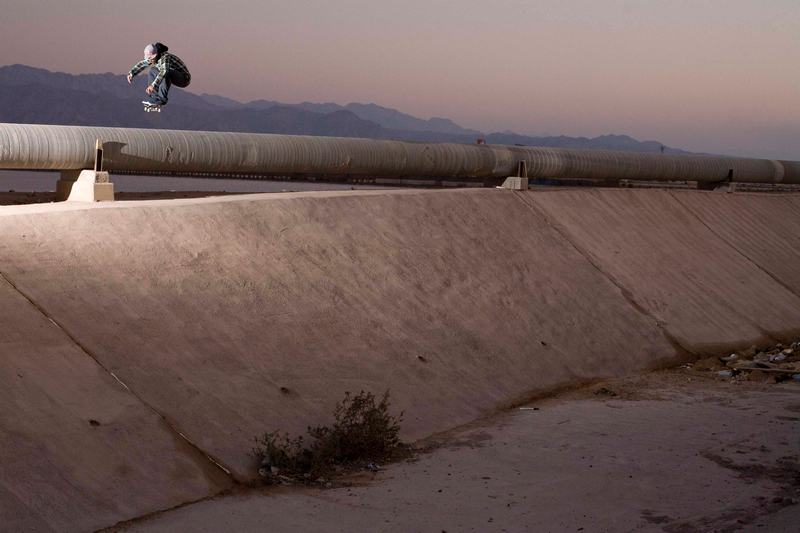
For years, you were on Red Bull. How did you start working with them, and how was it to work with a company like that? I know that these huge companies can help a lot but also ask for a lot in return.
Boaz: It’s interesting how I got to them. At the time, they aren’t all over the extreme sports, as they are today. I was doing my skateboard thing in Israel, I was sponsored by a local store, and I ended up going to France to visit a relative, and then I found out about a contest. I won the Best Trick there, but then I broke my hand. I remember telling myself that this skateboarding shit is over. I was like 20. (laughs) I had surgery and got two metal plates in my hand. I was like – “Fuck this!”
So, I came back to Israel, and we were just pushing skateboarding, pushing the culture, you know? Then somehow, through the local store, I ended up making some meetings with the local Red Bull office about making a skate contest, helping organize it, building the ramps, and everything. And they wanted me also to compete. And I was so involved in building the ramps, we finished at 3 or 4 AM. I went to sleep, and I was like – “Fuck, I don’t care about the contest. We built the ramps, and I can go to sleep now.” (laughs) And I remember a guy from Red Bull waking me up, saying that they want me to compete, and I have to compete in it.
So, I dragged myself out of bed, and I was tied with somebody for a third place. I skated okay, but I was dead from working. I thought I’ll never hear the Red Bull people again I’ll never hear from them again, but, I think a month or two months later, they called me for a meeting and told me they love what I’m doing with skateboarding, and they wanted to start doing some stuff with me. They gave me a bag full of Red Bull clothes and monthly pay, and told me to keep doing what I’m doing. And I was like – “Wow! You changed the course of how I’m thinking, ’cause I’m going to try and do this now, thanks to you guys.”
So, what’s important for Red Bull, I don’t know how it is now, but what was important for them was ranking in contests, they really love to see the hat on the podium. (laughs) But also, being a good representative. I also help them with branding skateboarding, working with skaters, and we did a lot of events and a few workshops together. In the beginning, we were just working locally, and slowly I started going to contest like Simple Session, meeting more riders, and going to more of the Red Bull stuff. Like, Croatia and Pannonian Challenge, I ended up there ’cause I was a judge in Red Bull Manny Mania in Zagreb. I was just talking with the locals, and one of the guys there told me like – “Hey, there’s this really cool contest here, it happens every year, and we have a lot of fun. You should come back in the summer!” Because, you know, Manny Mania was in the winter. I came back in the summer, and I think I was getting back five years in a row. (laughs)
So, the only thing with Red Bull, and I don’t blame them for it, the local agency here, they had some their own issues, business stuff, their sales declined, and they didn’t exactly hold their market value here. And after like 10 years of working with them, I got cut off because of that. But just the way that it ended, it didn’t feel… Like, we worked together for ten years, show me something… Like, give me a can that says “Thank you!” (laughs) You know what I mean? But it’s okay. I’m okay with it. I mean, I had a good time. I met a lot of people, made a lot of friends.
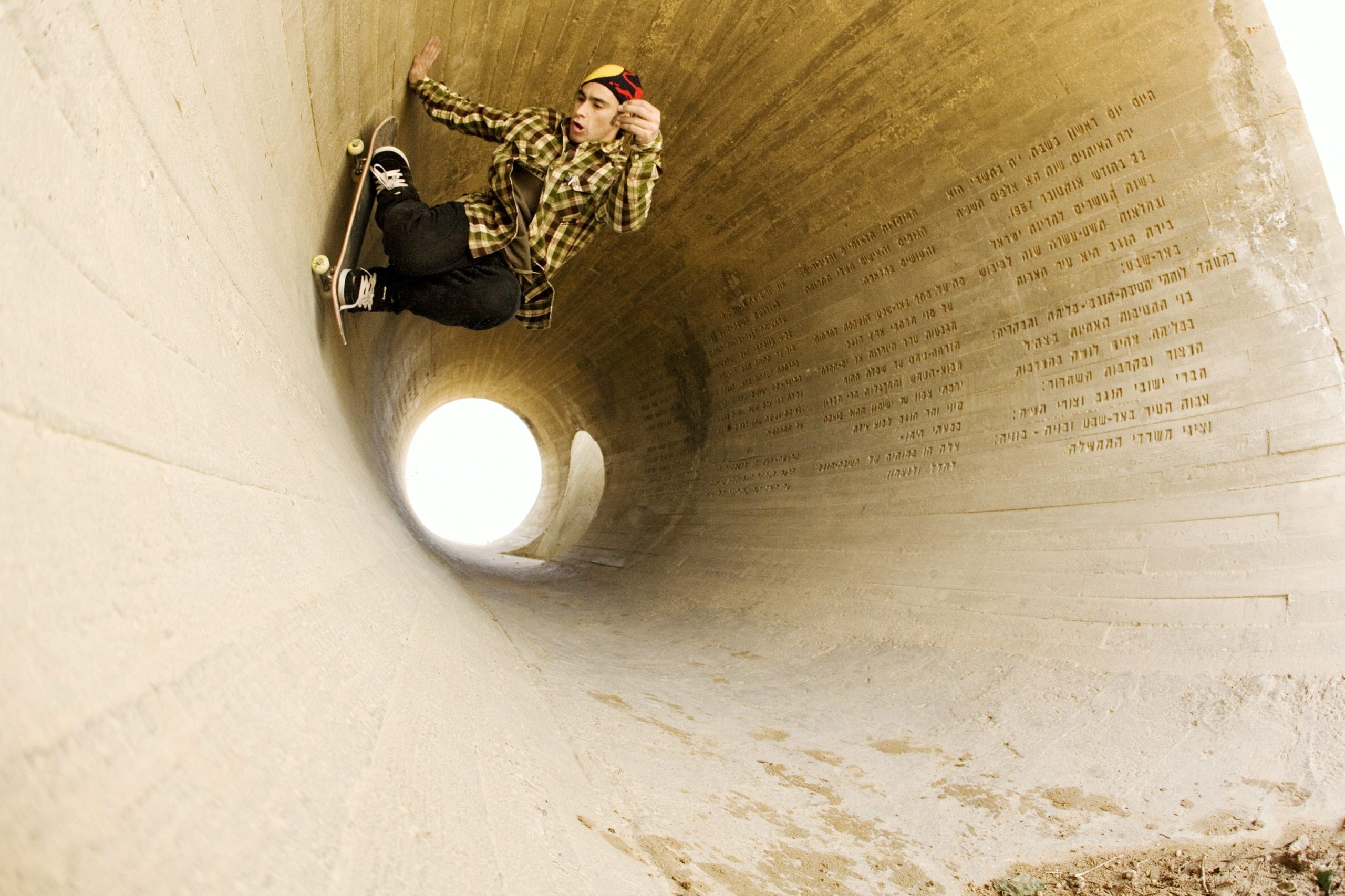
Tell me more about the scene in Israel? How is it today, compared to when you started?
Boaz: Skateboarding in Israel is in a very good place right now. There are more than 10 professional public skate parks in the country. Also, all the cities are very developed now, so there are a lot of good sidewalks, good areas, and plazas all over. It’s a very good place for skateboarding. The industry didn’t pick up yet, as much as we expected, but hopefully, it will come slowly. There aren’t too many laws against skateboarding, so it’s not like in the States where it’s illegal, and people get tickets and stuff. Maybe there are a few spots you should avoid. And locals are ripping, man.
You’re known as a big ambassador of skateboarding, also as a big supporter of young riders everywhere in the world. What inspires you to do that, and how important do you find that kind of support for the young guys
Boaz: I started skating in ’85 or ’86, so growing up in the late eighties, early nineties, the older guys were always intimidating, and not nice to us. They didn’t share anything with us, didn’t teach us, and when you come to the spot or the skate park, they chase you to the corner. So I always told myself – “Hey when I’m older, I’m going to be better than these guys. I’m going to teach the younger guys.” Young guys are the shit – they see what you do, and they create something new out of it. So, the next generation is what we have to work with.
Also, these days, when I go skate, I want to skate with younger guys. I want to see what they’re doing. I want to get inspired. So I think it comes from there, but also, in the early nineties, you know, this, there was almost nobody skateboarding, riding BMX, anything extreme. It would be cool for one or two summers, but then nobody would be doing it. And if you see somebody who just has shoes or a backpack, anything that has to do with this world and this culture, you’re going to speak with them. So when I’m traveling, and I’m in the city that is outside of the main cities, and there are some little skate kids, they are the first people I want to speak with.
And little kids are kicking everybody’s asses. (laughs) I just saw one of the kids, Sean Rosenberg, they just talked about one of his video clips on the Nine Club. He did a little clip from Macba on a tour, he did a nollie 360 heelflip. It’s a little bit different mentality and a different world from what I was used to. Now with the Instagram and internet and everything, a lot of really creative stuff is being done with nothing backing it. Stuff that you would expect from a big professional with a huge sponsor behind them, are done by some kid on his holiday. So yeah, it’s very interesting where it’s going.
And the trend that I like the most about skateboarding, and the movement that I really support is skateboarding for girls. There are so many girls skaters, and they’re getting really good. And I think like the curve of getting good is better for girls than for guys. They are getting good faster. Boys, we are very brave, but we don’t calculate so much. And girls, they don’t do stuff and get hurt. They really study what to do, and then they do it. At least that’s how I feel. A lot of guys get hurt really fast and then stop skating. (laughs) So, I think in the future, we’re going to see a lot more very good girl skaters. Even now, I see girls that are doing tricks that I’m not doing, some really technical stuff. They’re already getting there.
Yeah. Last year we were in Oslo, at the X Games, and the girl contest was crazy. But also Rayssa Leal from Brazil, she was 11 at the time, and it was insane watching her grinding rails almost as tall as her. (laughs)
Boaz: Oh yeah! She’s amazing! She’s killin’ it! But when you see that, and you see that young girls are almost better than the older, professional girl riders, what is coming in five, six, seven years? It’s going to be crazy. Also, what’s interesting, for guys, it’s like in sports. We don’t like to say skateboarding is a sport, but guys in skateboarding sometimes act like it’s a sport. “This guy did this on this rail, so you’ve got to do something better. He jumped this many stairs, so I’m going to do a kickflip on these stairs. I’m going to do something better.” And I feel like, for girls, these things don’t exist. They can re-do stuff. They have so many more options and stuff to do. Guys are fighting to find the biggest rail, or whatever. And girls, they go to all the spots that guys already forgot about, and they have so much stuff to learn and to do there. It’s going to be amazing.
Besides skateboarding, in recent years, you’re heavily involved in photography and videography. How did you get into it? How are things going for you in that field?
Boaz: So, this is something interesting. I think I always loved photography and movies, and that kind of stuff, but through skateboarding, we started filming each other and our friends. When you see yourself skate on camera, you learn from it a lot. And through that, I started to edit skate videos. I wanted to make skate videos, put music on it, make some little skits and stuff. Then, I was doing a local video magazine, LuVideoMag, there are three issues on YouTube. I even went to study a little bit. I did one academic year of video editing. But all I wanted to do was to edit skate videos.
And then, from that year I kinda caught that. I grew up on MTV in the 90s. And I was like – “Oh, I wish I would do music videos. How cool is that?” At that time, I was managing a skate store for seven years, and I had enough of it. You know, I have opened it and ran it and made it what it is today, but I had enough of doing that, being behind the counter, doing sales and inventory. I also did a little bit of marketing for the store and for the brands we imported, but I wanted to do something creative. So, when I was looking at what to do, my first thought was to be a yoga teacher. I’ve been practicing a lot of yoga all my life. But the more I looked into it, I was like – “Wow, yoga is very complicated, and it takes five, six years to study it.” And I wanted to work right away.
And then I had like a light bulb moment – “Hey, I know how to film and edit, but I never went for it. Let’s go for it.” So, I started with a few hip hop videos, just with a camera and editing at home, and it slowly led to more and more. I also started filming events and stuff, taking ideas, from skateboarding videos and stuff, and making it more for the broader public, and not only for skate kids and skate minds. But I kept it cool. ‘Cause skateboarding is cool, it’s interesting, it’s colorful. And I’ve been doing music videos – directing, filming, scripting, editing. Last year, I did three music videos for big record label companies here in Israel. That was a cool experience.
But let’s see what happens now, with the COVID-19. But the thing about skateboarding is that it’s a DIY thing. A lot of times it’s something you teach yourself, in your driveway or the alley behind your house. And with this filming and editing, especially in the world of today where you can find how to do almost everything on Youtube, I can take this approach and adapt it. And this Coronavirus situation is making everybody do it for themselves. For example, my girlfriend. She’s a singer and a musician and a songwriter, and because she has to stay at home, she’s starting to produce and record stuff. We even did a little music video when this quarantine started. She wrote a song with her mom, and I did a little video for it. (laughs)
It’s funny, but I actually never met a skateboarder that’s only a skateboarder, there’s always something else, and something creative. It can be music, it can be photography, video, art, but it’s always something.
Boaz: I’ve been in skateboarding for a long time, and it’s a very versatile culture. And through that, you get exposed to all kinds of beliefs, places, and experiences. It’s broad-minded people, and yeah, I would like to believe that skaters and people who stick with it are a little bit more creative. Maybe more interested in creative stuff, or at least have an understanding of it. But, as I said, it’s a toy, everybody has a different angle on it. Some people use it as a sport. Now it’s a trend with gym teachers, I see it on Instagram, they have like skateboard fitness. They stand with a skateboard on one side, and they roll it on the side to stretch. (laughs) I mean, everybody sees it differently. But, I think people that see it as part of their life, and something they create with, they identify with, they get creative.
So, what is next for you, once this crazy thing is over?
Boaz: Freedom! Freedom is inside our minds, it’s always here. (laughs) I hope a lot more creation, a lot more adventures with video and music videos. More work with record labels, so it’s more constant than not. I do enjoy different projects that are changing all the time, but also, bigger projects that you work on for longer. Also traveling, we have a little plan to go to the States, but let’s see how it works out. And of course, skateboarding on the weekends. Weekend warriors!
Follow Boaz Arrow Aquino:
Website: boazaquino.com
Instagram: instagram.com/luvideomag
Youtube: https://www.youtube.com/channel/UCCVCJOLi0PlZ4hFuPlTobcA
